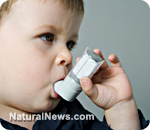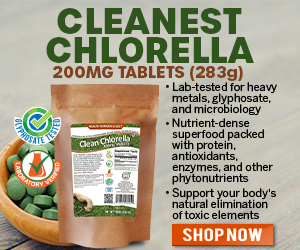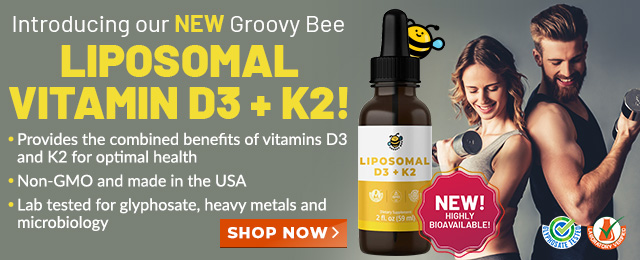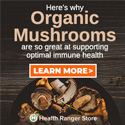
Children in danger from exposure to common chemicals, new studies confirm
Sunday, September 09, 2012 by: Sherry Baker, Health Sciences Editor
Tags: chemical exposure, children, asthma
- Newly released JFK files reveal Pentagon's role in creating Lyme disease and covid in the same lab
- Dr. Suzanne Humphries makes bombshell appearance on Joe Rogan podcast, exposing vaccine industry deception back to POLIOMYELITIS
- L.A.'s rebuilding nightmare: Only 4 permits issued after fire destroys 6,000 homes
- Discovery of vast underground city beneath Giza pyramids challenges human history
- Black cumin seed oil emerges as a powerful ally against breast cancer and chronic inflammation
- Catastrophic 7.7 earthquake devastates Myanmar and Thailand; death toll could reach 100,000
- The hidden battle in your glass: How A1 and A2 milk could shape your health
- AI breakthrough slashes celiac disease diagnosis time from months to minutes
- Sugar-free deception: Artificial sweeteners hijack hunger signals, fuel obesity epidemic, study warns
- Europe braces for WAR as EU urges citizens to STOCKPILE FOOD, in latest provocations with Russia
- Putin vows to 'finish off' Ukraine, accuses West of prolonging the war
- Thomas Massie’s Dual Loyalty Disclosure Act aims to restore American sovereignty by cracking down on foreign influence in Congress
- Aluminum pollution: A silent threat to human health
- Tesla owners under siege: Road rage, vandalism and political backlash fuel fear among drivers nationwide
- Kiss Your Genetic Privacy Good-Bye! 23andMe Gets Green Light to Sell Your Intimate Genetic Details to Anyone They Want
- Chaos in Amsterdam: Five injured in broad daylight knife attack near Dam Square
- "Feel G.O.O.D. Gut Health Program" on BrightU: Dr. Basima Williams introduces the Feel-Good Plate Method
- Trump's 25% auto tariffs: A bold move to strengthen U.S. manufacturing despite short-term challenges
- Newly released JFK files reveal Pentagon's role in creating Lyme disease and covid in the same lab
- Analysis: The coming economic collapse, a mass uprising and Trump's three secret weapons to halt the growing revolt
- Trump nominates VACCINE ZEALOT Susan Monarez to lead the CDC, sidelining RFK Jr.'s reform efforts
- Trump's greatest betrayal so far: Accelerating Middle East wars, silencing dissent, and serving Zionist masters
- Dr. Mike Yeadon releases 15-minute testimony - WATCH - about genocidal intent of COVID “vaccines”
- Festive flavors: The sweet history, nutritional profile and health benefits of pecan pie
- Elon Musk: Aliens could be here on Earth RIGHT NOW
- Big Pharma's $8 Billion bribery scheme exposed: how doctors are pushed to prescribe junk science, not heal
- 5 Simple steps to boost your brainpower: How to strengthen executive function in a distracted world
- Trump reverses course on Gaza plan, says “nobody is expelling Palestinians”
- A lack of integrity in Academia: Harvard professor found GUILTY of fraudulent research to promote CRT theory
- Reclaim your health: How midlife exercise reverses years of inactivity
- Survival 101: Effective EMF blocking techniques
- Florida takes a stand: DeSantis proposes permanent ban on mRNA vaccine mandates
- Sugarcane extract superior to cholesterol-lowering drugs?
- California's social media censorship law struck down: A victory for free speech or a threat to online safety?
- OpenAI whistleblower who dissented against how the company trained ChatGPT found dead
- EPA advisor admits the agency is funneling billions to climate groups ahead of Trump’s return to White House
- EPA advisor admits the agency is funneling billions to climate groups ahead of Trump’s return to White House
- Newly released JFK files reveal Pentagon's role in creating Lyme disease and covid in the same lab
- California's social media censorship law struck down: A victory for free speech or a threat to online safety?
- Dr. Mike Yeadon releases 15-minute testimony - WATCH - about genocidal intent of COVID “vaccines”
- The Health Ranger releases “Vaccine Zombie” song and music video, using AI-animated zombies for the music video
- The pandemic as a tool for INDOCTRINATION: Understanding “The Indoctrinated Brain” by Dr. Michael Nehls
- Florida takes a stand: DeSantis proposes permanent ban on mRNA vaccine mandates
- “Why we influenced the 2020 elections”: Facebook files reveal the coordinated effort to bury the Hunter Biden laptop story
- Mike Adams releases country western hit single: Goin’ Back in Time is Comin’ Home
- Mike Adams releases music poetry sensation: A Child of God
- Unpacking the Lies That We’ve Been Fed – new song and music video released by Mike Adams, the Health Ranger
- Michigan sheriff announces criminal investigation into 2020 election crimes, Dominion Voting Systems
- Migrants are taking advantage of recent hurricanes to scam residents and loot their homes
- House Intelligence Committee calls for the ARREST and PROSECUTION of Dr. Anthony Fauci
- RFK Jr. clears key hurdle: Sen. Susan Collins backs controversial HHS nominee, signaling a new era for health policy
- Rep. Nancy Mace introduces bill to ban biological males from female facilities on federal property
- Peter Rost exposes Big Pharma corruption in his book “The Whistleblower: Confessions of a Healthcare Hitman”
- Mike Adams releases new song and music video: Nothing More Disgusting Than a Globalist
- Red Cross issues warning to stop blood plasma donations from vaccinated people
- Scientists confirm: GENIUS brain function can be spontaneously unleashed in humans without any apparent cause
- EPA advisor admits the agency is funneling billions to climate groups ahead of Trump’s return to White House
- HYSSOP: What research reveals about the health benefits of this ancient holy herb
- Two containers with completed ballots fall out of truck in Florida
- Fully vaccinated about to see “tsunami” of illness and death, warns virologist
- Global leaders unite to clamp down on “misinformation” with UN-backed Cascais Declaration
- BREAKING: 2025 NDAA authorizes mandatory military draft of WOMEN across America… as Pentagon pursues global NUCLEAR war with both Russia and China at the same time
- Michael Yon warns of a ZIONIST TAKEOVER in Trump’s second administration
- BOMBSHELL: DNA testing kits are a SCAM to develop ethnic-specific bioweapons
- Ozempic and Wegovy weight loss drugs are injectable LIZARD VENOM PEPTIDES that may unleash a devastating wave of organ failure… side effects align with symptoms of SNAKE BITES
- Israeli soldiers accused of even more torture and abuse in the West Bank
- These 13 countries just signed an agreement to engineer a global FAMINE by destroying food supply
- NASA admits that climate change occurs because of changes in Earth’s solar orbit, and NOT because of SUVs and fossil fuels
- RFK Jr. clears key hurdle: Sen. Susan Collins backs controversial HHS nominee, signaling a new era for health policy
- Sermon 30: How Jesus reveals Caesar’s FAKE CURRENCY and FALSE AUTHORITY
- Coriander seeds: Ancient medicine backed by modern science
- Arizona officials claim Maricopa County needs 10-13 days to tabulate results of the election
A case in point: researchers from the Columbia Center for Children's Environmental Health (CCCEH) at the Mailman School of Public Health and Columbia University Medical Center have determined that youngsters exposed during the prenatal period to the widely used pesticide additive piperonyl butoxide (PBO) have an increased risk of developing a chronic cough at ages 5 and 6. Their study, just published in the online edition of the journal Environment International, provides evidence that a child's respiratory system is susceptible to damage from toxic exposures while still in the womb. While not due to an infection, a chronic childhood cough can seriously disrupt normal daytime activities and severely disturb sleep for both kids and their parents.
So what exactly is PBO? It's a compound that increases effects of pyrethroids which are found in the pesticides most commonly used by both professional pest controllers and consumers, according to a 2011 study by Mailman School researchers. Previous research showed exposure to one pyrethroid, a variation of permethrin, was especially linked with increased risk for cough by age five. The new study found that children exposed to PBO during pregnancy had an increased risk of coughing unrelated to cold or flu.
A chemical cause of childhood asthma?
An even more serious problem caused by common chemicals that impact children's ability to breathe freely has been revealed by another new CCCEH study. It turns out that youngsters exposed to diethyl phthalate (DEP) and butylbenzyl phthalate (BBzP), which are phthalate chemicals commonly found in personal care and plastic products, have an elevated risk of asthma-related airway inflammation.The research team studied 244 children between the ages of five and nine and found they all had detectable levels of phthalates in their urine. Those with the higher levels of both phthalates were found to have higher levels of nitric oxide in their exhaled breath -- a biological marker of airway inflammation. The link between BBzP exposure and airway inflammation was especially strong among children who had recently experienced wheezing, a common symptom of asthma.
"While many factors contribute to childhood asthma, our study shows that exposure to phthalates may play a significant role," says Allan Just, PhD, first author on the new study, which was recently published online in the American Journal of Respiratory and Critical Care Medicine.
Shielding your children from phthalates can be difficult because manufacturers are permitted to use these chemicals in countless consumer wares, including plastics, vinyl flooring, and personal care products. Phthalates enter the body through ingestion and inhalation. They can be absorbed through the skin, too. In addition to possibly triggering asthma in kids, several phthalates are known to disrupt the endocrine system and early-life exposure has been linked to adverse neurobehavioral and reproductive effects as well as to childhood eczema.
Sources:
http://www.sciencedirect.com/science/article/pii/S0160412012001742
http://www.mailman.columbia.edu
http://ajrccm.atsjournals.org
http://www.mailman.columbia.edu
https://www.naturalnews.com/026813_phthalates_chemicals_birth.html
About the author:
Sherry Baker is a widely published writer whose work has appeared in Newsweek, Health, the Atlanta Journal and Constitution, Yoga Journal, Optometry, Atlanta, Arthritis Today, Natural Healing Newsletter, OMNI, UCLA''''s "Healthy Years" newsletter, Mount Sinai School of Medicine''''s "Focus on Health Aging" newsletter, the Cleveland Clinic''''s "Men''''s Health Advisor" newsletter and many others.
Chemical exposure at FETCH.news
Get independent news alerts on natural cures, food lab tests, cannabis medicine, science, robotics, drones, privacy and more.
Take Action: Support Natural News by linking to this article from your website
Permalink to this article:
Embed article link: (copy HTML code below):
Reprinting this article:
Non-commercial use OK, cite NaturalNews.com with clickable link.
Follow Natural News on Facebook, Twitter, Google Plus, and Pinterest
Science News & Studies
Medicine News and Information
Food News & Studies
Health News & Studies
Herbs News & Information
Pollution News & Studies
Cancer News & Studies
Climate News & Studies
Survival News & Information
Gear News & Information
News covering technology, stocks, hackers, and more



"Big Tech and mainstream media are constantly trying to silence the independent voices that dare to bring you the truth about toxic food ingredients, dangerous medications and the failed, fraudulent science of the profit-driven medical establishment.
Email is one of the best ways to make sure you stay informed, without the censorship of the tech giants (Google, Apple, Facebook, Twitter, YouTube, etc.). Stay informed and you'll even likely learn information that may help save your own life."
–The Health Ranger, Mike Adams












































